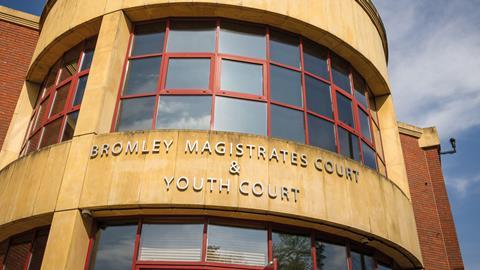Dishonesty

In R v Barton and another [2020] EWCA Crim 575, a five-strong Court of Appeal held that the appropriate test for dishonesty in the criminal courts was the test set out, obiter, in Ivey v Genting Casinos (UK) Ltd (trading as Crockfords Club) [2017] UKSC 67 by the Supreme Court, namely: 1) the defendant’s actual state of knowledge and belief as to the facts; and: 2) whether his conduct was dishonest by the standards of ordinary, decent people. The test in R v Ghosh [1982] Q.B. 1053, CA has been consigned to the dustbin of legal history.
Intermediaries
The appointment and use of intermediaries as a ‘special measure’ to assist a witness to give their best evidence remains a troubling issue.
Although a practitioner might commission a report from an intermediary as to what assistance a witness or the defendant might benefit from, the court is not obliged to appoint an intermediary or to appoint for the full length of any trial. In R v Pringle [2019] EWCA Crim 1722, the Court of Appeal allowed an appeal against conviction, where the trial judge’s decision had been to limit the role of the intermediary to assist the defendant in giving his evidence. The intermediary was not prepared to attend for that purpose. The judge had not held a ground rules hearing, or set out what questions should be asked in cross-examination to ensure the fairness of the trial. No clear direction was given to the jury to explain why the defendant did not have an intermediary, but their co-defendant, who had comparable disadvantages, did.
In R v Thomas (Dean) [2020] EWCA Crim 117, it was noted that the trial judge had directed that all questions of the defendant were focused on the very narrow issue in dispute, with appropriate breaks being afforded, so that the judge’s direction not to appoint an intermediary was upheld. In TI v Bromley Youth Court [2020] EWHC 1204 (Admin), the decision of the judge to refuse the appointment of an intermediary led to a successful appeal where the judge did not explain how the claimant would be able to engage with the trial process generally, given his accepted inability to engage and concentrate as set out by the intermediary and a psychologist.
These cases are fact-specific and attention is drawn to R v Rashid [2017] EWCA 2, R v Biddle [2019] EWCA Crim 86 and CPD 3F.13.
Statutory surcharge
The Court of Appeal in R v Abbott and others [2020] EWCA Crim 516 has held that when a court deals with an offender for a number of offences by a sentence of the same type, the appropriate surcharge to be imposed requires the sentences to be aggregated, rather than the surcharge to be fixed according to the highest individual sentence imposed. Where sentences of different types are imposed on the same occasion, then the surcharge should be calculated according to what the highest surcharge would be after, for example, the amount of financial penalties are totalised as against, for example, the total custodial sentence imposed. The surcharge rates vary depending on the date of the commission of the offences and ‘spree’ offenders may face revocation and resentence in respect of offences that resulted in a discharge. The defendant’s antecedent record does not always reveal the date of earlier offences as opposed to the date of sentence. To complicate matters further, the judgment states that if the court deals with a breach of a current community order by imposing more onerous requirements as well as sentencing new offences, then the court is dealing with the offence(s) that lead to the imposition of the original order. With respect, it is not, it is dealing with a breach.
Prison conditions
Many defendants will be concerned as to the effects of a prison sentence, particularly in present circumstances. In R v Manning [2020] EWCA Crim 592, the lord chief justice made clear that current prison conditions might be a relevant factor to enable the court to step back from imposing an immediate custodial sentence and for the magistrates’ court to decide not to commit for sentence to the Crown court.
Adrian Lower is a district judge (magistrates’ courts)
































No comments yet